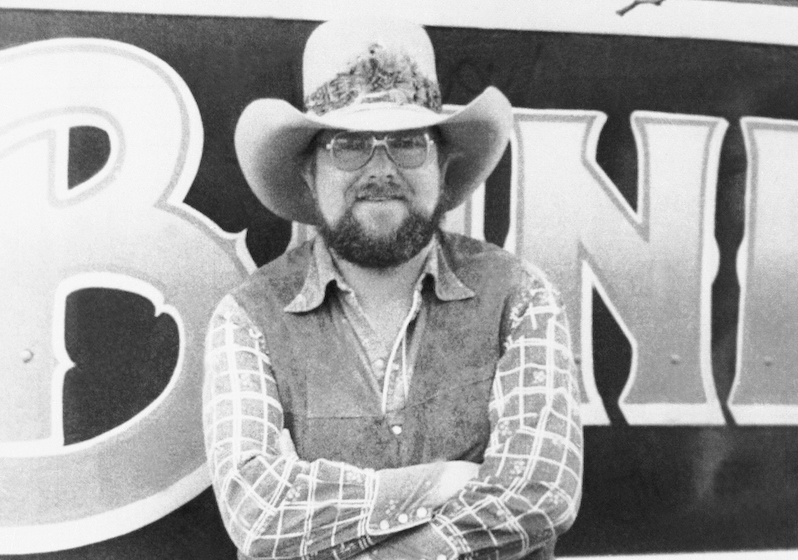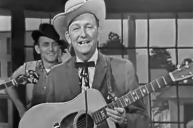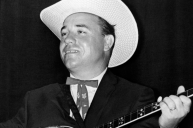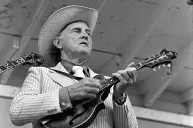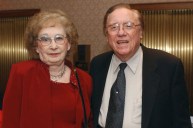In 1969, innovative five-string banjo picker Earl Scruggs' career was in flux. That year, he transitioned from his famed pairing with guitarist Lester Flatt to The Earl Scruggs Revue, featuring sons Randy (guitar), Gary (bass) and Steve (drums). Keen on his sons' appreciation of Bob Dylan and others who were considered radical at the time, Scruggs opened himself to genres beyond hardcore bluegrass music.
Videos by Wide Open Country
Mr. Scruggs Goes to Washington
Hanging with hippies and playing college campuses with Steppenwolf wasn't the most radical move by Scruggs in the late '60s. With the three bandmates closest to his heart all being draft eligible, he boldly took his Revue to play the Nov. 16, 1969 Moratorium to End the War in Vietnam in Washington, D.C. The event was a peaceful demonstration that attracted as many as 500,000 protesters to the nation's capitol. Usual folk revival suspects Peter, Paul and Mary, Arlo Guthrie and Peter Seeger also appeared as musical guests.
By most accounts, Scruggs genuinely worried about his sons and other young men their age getting killed in Vietnam. He didn't have a radical anti-war platform, and he wasn't thumbing his nose at the presumably conservative and pro-American country music establishment in Nashville.
In retrospect, it's not that odd that the banjo playing phenom behind "The Ballad of Jed Clampett" (The Beverly Hillbillies theme song), "The Story of Bonnie and Clyde" and "Foggy Mountain Breakdown" stopped shilling Martha White flour to open for Seeger. Considering the audience reached that day's admiration for the Staple Singers, Doc Watson and other old-time traditionalists, they surely cherished the chance to witness the genius behind the Scruggs style of bluegrass banjo picking.
Uneasy Rider?
If you think Scruggs' war protester past shatters stereotypes, try wrapping your head around a particular band mate's involvement. On stage that day was Charlie Daniels, a young studio musician who'd eventually help define Southern rock and modern fiddle-playing. Be it a show of respect for Scruggs' decision or a case of what he might've later called youthful indiscretion, the pro-American music icon and salt-of-the-earth antithesis of Hollywood's liberal crowd played a visible role in a massive anti-Vietnam War gathering.
This, too, isn't all that bizarre, considering Daniels was a more complex artist than some critics admit. His first big breaks came playing on Dylan's trilogy of Nashville albums and through a similar working relationship with Leonard Cohen. When he went from the more cosmopolitan side of pop to Southern rock, Daniels helped represent the values of a man he'd campaign to elect, Jimmy Carter, more so than any conservative stereotype. In short, don't try to put him in a box based on something you read on Twitter.
Read More: Unearthed Dr. Pepper Promotional Footage Features Bill Monroe and His Blue Grass Boys
Protest involvement didn't soil either North Carolina native's legacy. Neither got blackballed from the Grand Ole Opry, the Ryman Auditorium or anyplace else, allowing both to still represent the old-time way to their previously established audiences.
This story originally ran on Jan 11, 2019.
Now Watch: Songs Every George Jones Fan Knows By Heart
https://rumble.com/embed/u7gve.v3v85j/
